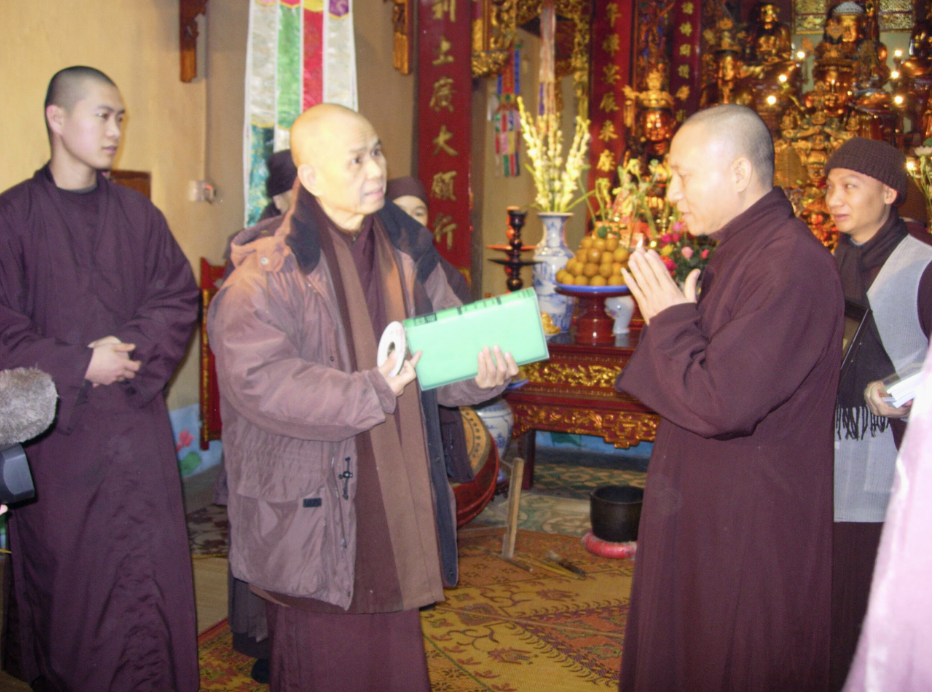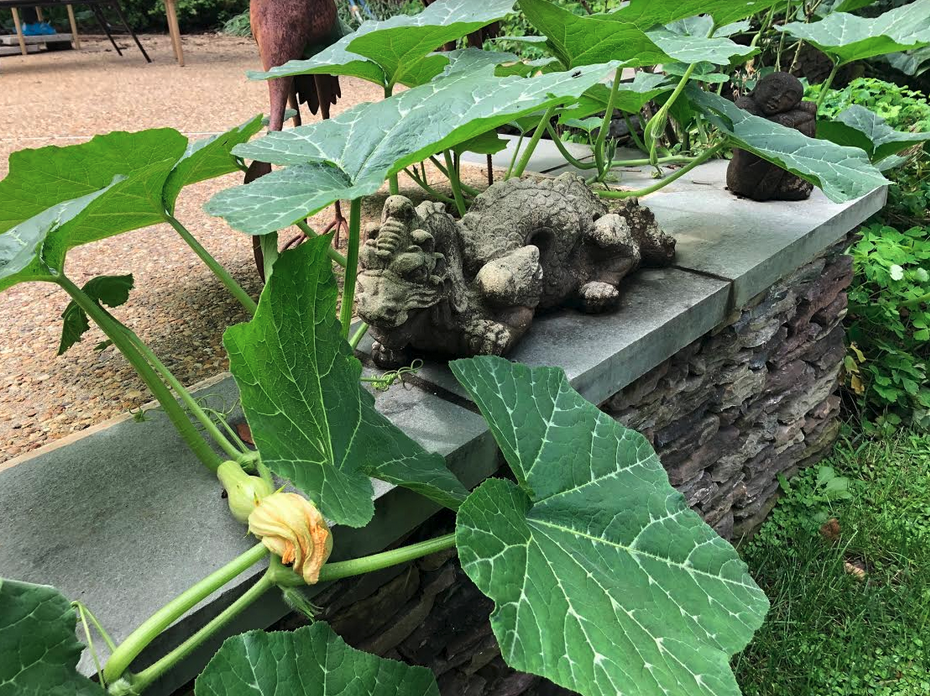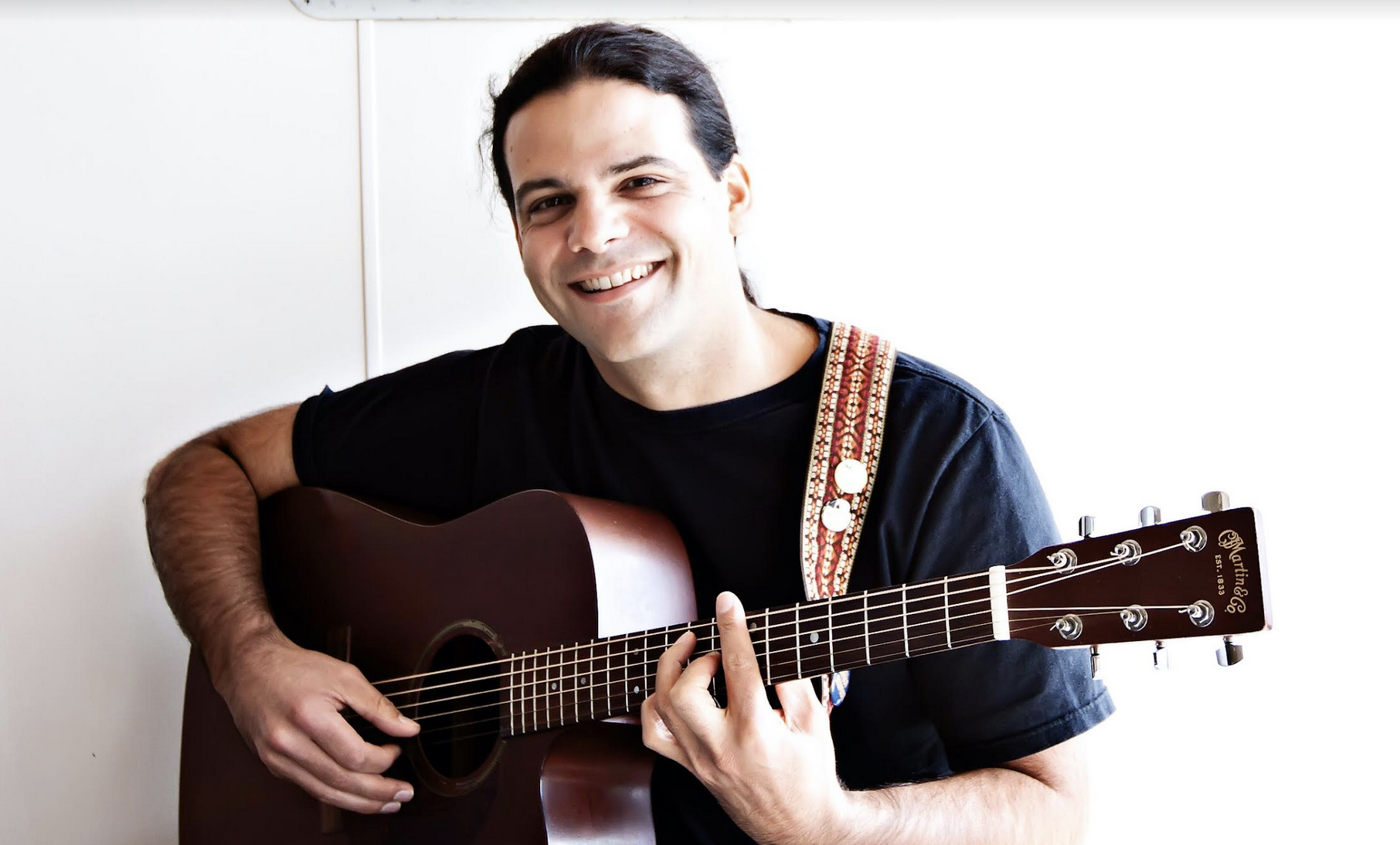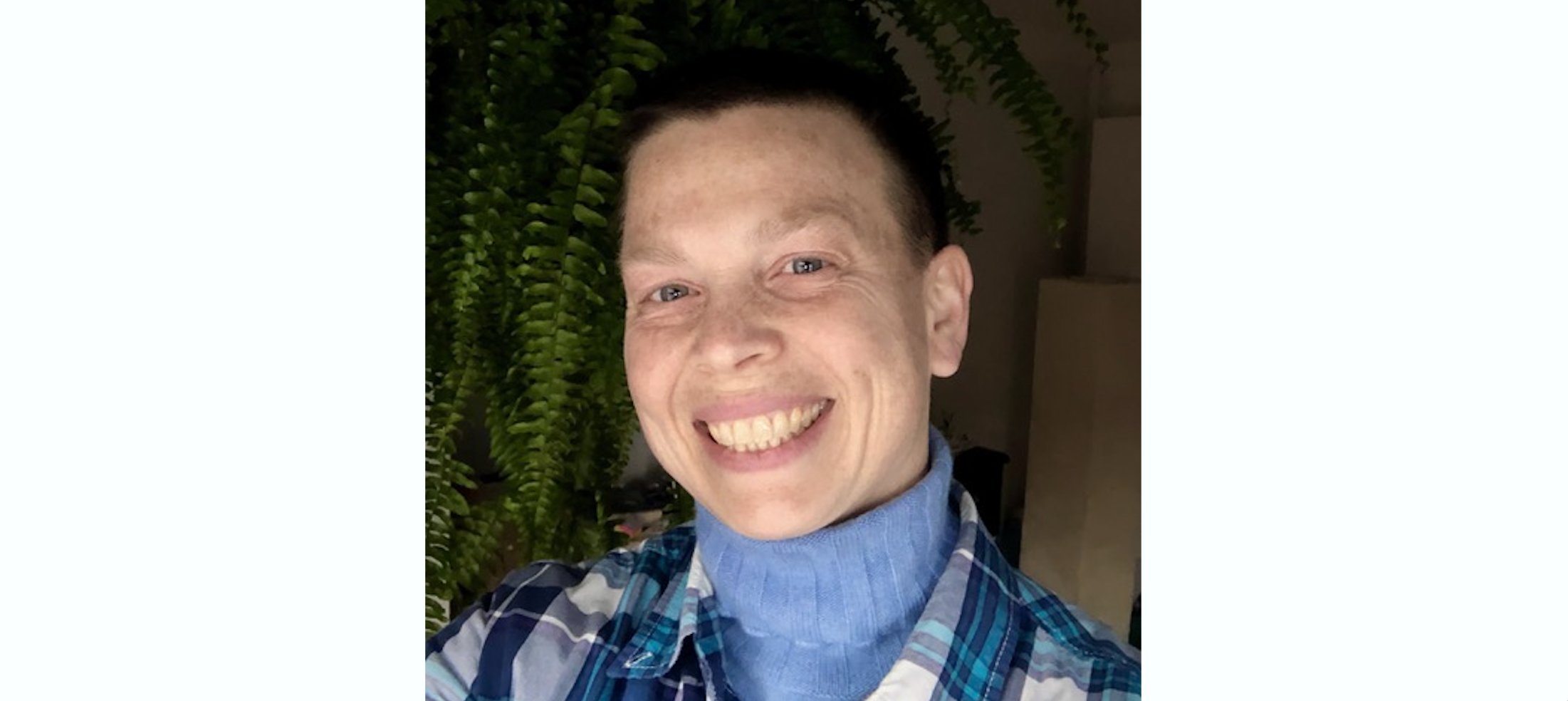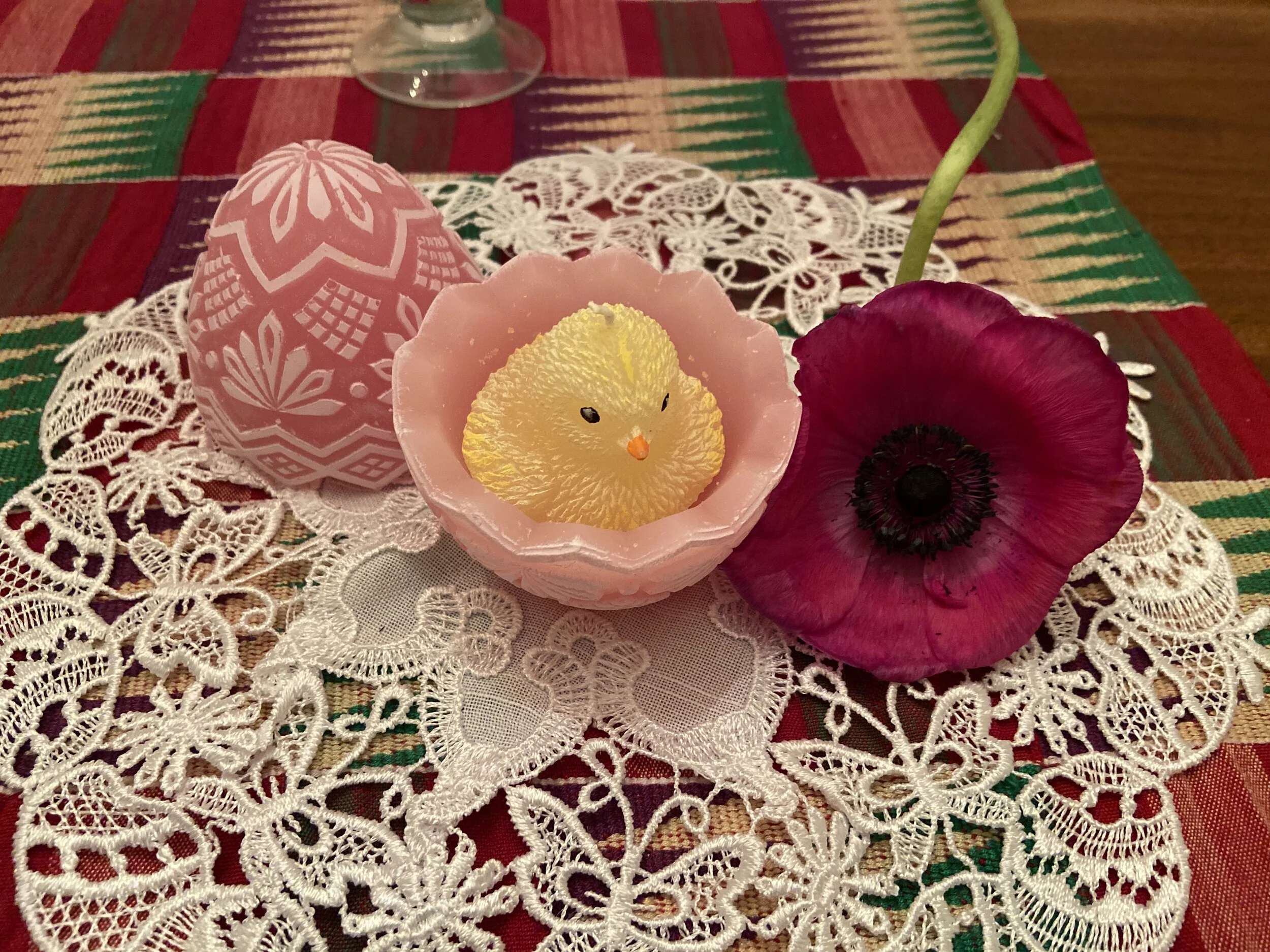Building on last week’s theme of Right/Wise Effort on the Buddha’s Eight-fold path, I invite you to explore more deeply what you are doing to enjoy your time here on the planet. I ask myself if the activities I engage in and the effort I give them are aiding or hindering me. Am I gaining greater awareness to reach a longer term objective: to transform my mind, my heart and my life/situation? As the current pandemic tosses and turns us and our world, I feel the calling to reflect on the way forward. Sometimes it feels so overwhelming. Yet when I’m able to come back to the present moment, it’s much easier to let the sounds of the birds, the morning light, and the blue sky help me to anchor my day. And then I can move forward, one day at a time.
Right Effort
One of the central tenets of Buddhism is known as The Noble Eight Fold Path.
Right View
Right Resolve
Right Speech
RIght Action
Right Livelihood
Right Effort
Right Mindfulness
Right Concentration
For this week's dharma sharing I thought I would focus on the sixth of the eight -- Right Effort. Endeavoring to give rise to skillful thoughts, words, and deeds and renouncing unskillful ones. Right effort can be viewed as something akin to the sweet spot between gritted teeth determination and relaxation that veers into daydreaming.
Right effort involves working towards healthy states of mind and body mind as well as learning to have the grace to accept and submit to what cannot be changed. In other words learning to let go of what is unhealthy or unhelpful.
Lazy Days
Since I'm on vacation this week, I thought we might consider the benefits of being lazy. This is a photo of Lake Michigan where we have are being very lazy.
In my household growing up, being lazy was an insult. If we kids were ever caught playing or reading when there was work to be done, we were called a ""lazy bum" and immediately put to work.
On my first retreat with Thich Nhat Hanh, I learned about the "lazy day". During each week of each retreat I've ever been on, there has been one day set aside as a lazy day. On lazy days we don't have a schedule and we do whatever brings us joy. It sounds good, but it can be challenging for me!
I often feel some tension in my body when I'm not doing something or attending to something. In addition to Fear of Missing out (FOMO) I think I also have Fear of Not Doing Something (FONDS). So being on vacation is good practice for me.
For me, FONDS is driven by the misperception that I am separate from others and that if I don't hurry up and do something, things will fall apart…
Braiding Interbeing Though Humility
This week Magda will facilitate about how the universal value of humility can foster
ancestral and spiritual connections that help us heal, renew and inter-be.
Minutes after I found out that my father had died, I sat on the rich humus of our backyard. There, among the many tropical trees that he and my mom had lovingly planted, I built him a temple out of soil, roots and branches. There were so many roots and branches surrounding me, as if they were all working to braid a cradle of support for me in return for my father’s many years tending them.
Touching the earth, I took refuge in it. Receiving what Thich Nhat Hanh refers to as the earth’s solid and inclusive energy, I calmed down and began my healing process. With an intense feeling of grief and belonging, I started anew.
At the age of 17, sitting on the humus, I made my pledge: my father’s short life would be prolonged through mine, a life lived by the values he taught me.
Joe Reilly, Environmental Singer and Songwriter, joins our sangha to guest facilitate with Camille
Dear friends,
Camille will be facilitating this Monday night July 12 with special guest Joe Reilly. We are very happy to welcome Joe to sangha to share his music and mindfulness practice. He will be sharing his music and journey with us complete with song sheets to sing along which you are welcome to print or have on your screen at sangha. You are invited to come and practice and sing with us.
Guest Mitchell Ratner joins our sangha Monday night: Hello Resentment, My Old Friend
Dear OHMC Friends,
In 1983, I attended the funeral of an aged relative. There, I had the opportunity to talk with her son, who was then 74 years old. I was curious about the everyday details of his early life: where they lived, what they ate, when they spoke Yiddish, when they spoke English. However, he only wanted to talk about one thing — that his mother and father always favored his older sister. She got the support. She got the praise. He got none of it. They were always undercutting him, belittling him, angry at him.
Though we didn’t talk about it that day, I already knew some “facts” about him. In his twenties he met a woman his parents did not approve of, eloped, moved far away to her home town, and lived a seemingly comfortable life, raising four children. I also knew he rarely wrote, talked with, or visited his parents and siblings.
I was shaken by what he told me — partly because of the vehemence of his resentment towards his parents and how it seemed to overwhelm all other memories, and partly because I knew I had that seed of resentment in me as well, though I believed that mine was not so easily exposed.
Guest Melina Bondy, former Plum Village monastic, will give a Dharma talk on the Four Noble Truths: From Ideas to Action
Dear friends,
This week we will have a special guest on Monday night.
Melina Bondy, a former monastic who was ordained by Thich Nhat Hanh and has now returned to lay life (see her bio below) will give a short Dharma talk about the Four Noble Truths in daily life: from ideas to action.
Melina writes “the Four Noble Truths can be seen as a list of ideas to believe in but they are meant to be actions to apply in all aspects of life. We'll look at core terms in this teaching, how they show up in our lives and ways to apply this practice on and off the cushion.
Those who are interested are welcome to read about the Four Noble Truths here and/or the sutra we will refer to (see below), though this is not necessary."
Individual and Collective Reverence for Life
This Monday, Annie will facilitate. After meditation, we will recite the Five Mindfulness Trainings together and then focus on the First Mindfulness Training, Reverence for Life.
Reverence For Life
Aware of the suffering caused by the destruction of life, I am committed to cultivating the insight of interbeing and compassion and learning ways to protect the lives of people, animals, plants, and minerals. I am determined not to kill, not to let others kill, and not to support any act of killing in the world, in my thinking, or in my way of life. Seeing that harmful actions arise from anger, fear, greed, and intolerance, which in turn come from dualistic and discriminative thinking, I will cultivate openness, non-discrimination, and non-attachment to views in order to transform violence, fanaticism, and dogmatism in myself and in the world.
When I was about 10 years old, we took a family trip to New Orleans. After dinner at a restaurant, our parents decided to take us all (Mom, Dad, Grandma, and four kids) down the very racy Bourbon Street. It was dark and when we came around the corner, we encountered a fight starting at the bus stop.
We all wanted to keep walking -- except my mom. She believed that one of the men, both very drunk, was getting bullied, and she had to step in. She told the other man, several times, to stop it. I can't tell you what happened next because Dad, Grandma and we four kids took off across the street to safety. Mom followed minutes later. My mom's brief action showed me that courageous immediate direct action is one way to protect life.
My mom may have prevented someone from being seriously hurt or killed and another person from becoming a perpetrator that night.
Healthy Thoughts
Last week I was moved by the dharma sharing provided by our guest Barbara Newell. It led me to thinking of similar moments in our lives when a low point is reached and we feel in some way empty with nothing more to give.
This could have to do with a relationship, a job, or some other life situation. I am very grateful that I have not found myself in such situations very often and when I have, I have had the resources and support to make it through. In almost all cases, the calamitous scenarios I had running through my head never came to pass. If something bad did occur, I was able to get through it, and it was less bad than I had imagined…
Guest Barbara Newell, former Plum Village monastic, will lead sangha Monday June 7
Dear friends,
This week we will enjoy a guest facilitator for our Monday evening meditation!
Barabara Newell, a former monastic at Plum Village, spent twelve years as a Buddhist nun in the community learning directly from Thich Nhat Hanh. Her full bio is below.
On Monday night, after our meditation period, Barbara will offer a Question and Answer session about the practice and teachings.
We would love to hear some of your questions in advance (which will help Barbara plan her time), so please send questions for Barbara to info@openingheartmindfulness.org before Monday. There will also be time to receive questions "live" on Monday evening.
The Five Earth Touchings: Committing to One Another in Solidarity
Monday evening we will share the five Earth Touchings together. The touchings of the Earth are a Buddhist tradition where we bow down and surrender to the earth. We join body, mind, and breath to return to the Earth and to all our ancestors knowing that we are not alone. We are in the Earth and all our ancestors, and they are in us. When we touch the earth we breathe in her energy, strength, and stability and when we breathe out we release our grief and suffering that we have experienced collectively.
On Monday we will practice the ARISE (Awakening through Race, Intersectionality, and Social Equity) earth touchings which are an adaptation of the Plum Village Earth Touchings. The ARISE sangha is a "community of mindfulness practitioners and monastics who come together to heal the wounds of racial injustice and social inequity, beginning with looking deeply within ourselves and using the energy of compassion, understanding, and love in action."
How My Mindful Solidarity Turned Boricua
In Old Paths White Clouds Thich Nhat Hanh describes how, soon after the Buddha achieved Enlightenment, he played the flute in such a sublime and transcendent way that it left an audience of musicians in awe. The Buddha explained that he had not practiced the flute in nearly seven years since he had left his home and that his performance did not depend solely on practice: “I now play better than in the past because I have found my true self.”
This story reminds me of how my mindfulness journey has helped me find a more genuine version of myself. I had the opportunity to recognize my transformation last summer during a lengthy visit to Puerto Rico to support my elderly mother. She had been deeply impacted by the island’s natural disasters followed by a strict pandemic quarantine. The Catholic dogma of my upbringing would have never sufficed to help me transcend the desolate conditions I encountered…
Solidarity: Born of stars, we inter-are
Dear Friends,
Planetary scientist and stardust expert Dr. Ashley King explains,"Nearly all the elements in the human body were made in a star and many have come through several supernovas." Most of the elements of our bodies were formed in stars over the course of billions of years and multiple star lifetimes.
We all come from a source. We are all related. We are born of stars, and like a star, each of us is unique unlike any other ever from the past or future. Can we see one another as siblings; knowing that we are each a bit different and yet related?
How can we love and embrace our differences and be kind to our siblings so they can suffer less and we can suffer less and stop causing suffering? Is this a time like no other? Or have we been here before?
Emptiness, Solidarity, and Freeing Ourselves from Fear
Dear Friends,
For our month of contemplating solidarity together, I will share some thoughts about the practice and insight of sunyata – aka interbeing/emptiness/boundlessness and how this insight can help us understand solidarity and act in ways that serve all beings.
adrienne maree brown says:
“In nature, we see so clearly how the healthiest ecosystems thrive in biodiversity. There are as many ways of being, growing, processing sunlight and rain in life as there are species. When something threatens the trees, the mushrooms spread the warning and the forest adapts to protect the tree, knowing that each tree is part of the health of the whole – mushrooms flower on the tree’s trunk, sparrows nest in the tree’s branches, fecundity bursts forth in the tree’s shade. No creature or plant in that healthy ecosystem functions as a monopoly, or as an individual. They make it as long and as far as they can grow together.” – from Disrupting the Pattern: A Call for Love and Solidarity (online)
When we know that we inter-are with others, we know that there is no separate giver and no separate receiver of our gifts. We simply are together and naturally work together in solidarity.
What does “practicing solidarity” mean to you?
Dear Thay, dear friends,
As you may have seen in an earlier email, we will explore the theme, practicing solidarity, throughout the month of May. We will “second body” Nueva Vida, the same organization that we worked with last year. Our hope is that by practicing solidarity with Nueva Vida as individuals and as a community, and by learning about how our practice affects us, we can nourish ourselves, each other and the larger society of which we’re a part.
On Monday, we will look at our own experiences of being in and out of solidarity. While I’d like to believe that I’ve “graduated” from one to the other, deep within, I know that it isn’t so easy...
Attention is the beginning of devotion
“Attention is the beginning of devotion.”---Mary Oliver
Pay attention. Pay attention. There’s a good chance that you heard this familiar command when you were a child. There’s also a good chance that you were never taught how to pay attention. It has been said that “attention is the new currency”.
Countless apps, websites, etc are designed to steal your attention.
The booming popularity of Mindfulness raises the question -What is Mindfulness?
A commonly used definition of mindfulness states that mindfulness is the practice of paying attention to things as they are in the present moment, with kindness and non-judgment.
The practice of mindfulness is a practice of learning to stay in the present moment
through developing our capacity to pay attention. Thich Nhat Hanh talks about how listening to the bell reminds us to come home to the present moment and to enjoy our breathing. He continues in saying:
The sound of the bell brings about appropriate attention, the kind of attention that turns on good things like mindfulness and joy. But there are other sounds and sights that bring our attention to negative things like craving, fear, anger, distress
Yes, and….
On Monday night, I will share with you a practice of ‘skillful speaking and deep listening’. I have been trying it out over the past year. I was inspired to take this up by a sharing guideline for multi-cultural gatherings that Valerie Brown offered during our 2021 OHMC annual retreat:
Practice “Both / And”: When speaking, substitute “and” for “but”. This practice acknowledges and honors multiple realities.
Sounds simple and straightforward enough, doesn’t it? I never dreamed it would be so challenging! My hablt energy when someone offers a new idea or way of doing something is to flip into ‘critical thinking’ mode-- perhaps linked to years of program evaluation work and deep seeds in my store consciousness? Rather than listening deeply and acknowledging the speaker, I get busy inside my head coming up with a response that often may start off “Yes, but….”. I may interrupt the speaker with questions or offer alternative views before they have had a chance to finish. Clearly, in this pattern, I am not being very mindful to acknowledge nor honor multiple realities.
Beginning Anew: the Plum Village Practice of Nourishing Relationships and Resolving Conflicts
We can see ourselves as gardeners and those we are in relationship with as our garden. Knowing that whatever we water grows, what kind of seeds do we want to water and cultivate in our dear ones? What kind of seeds do we want to avoid watering and cultivating?
The practice of Beginning Anew, developed by Thich Nhat Hanh and the Plum Village sangha helps us to take good care of our relationships by bringing the best of ourselves to the other and bringing out the best in our beloved ones. We know that we have many wholesome qualities inside of us and so do the people in our lives. If we ignore these qualities and only focus on what is not going well, we do ourselves and others a real disservice, missing many precious opportunities to enjoy and delight in each other.
It’s Spring - Let’s Plant Some Seeds
Just as in spring we consider what seeds we want to plant to enjoy later in the year, be it flowers, fruits or vegetables, so it is with selecting which seeds we need to plant or nurture in our deep consciousness. As Thay writes: “Whether we have happiness or not depends on the seeds in our consciousness. If our seeds of compassion, understanding, and love are strong, those qualities will be able to manifest in us. If the seeds of anger, hostility, and sadness in us are strong, then we will experience much suffering”.
Every act we make through our body, speech and mind sows seeds in our consciousness, and our store consciousness preserves and maintains these seeds. Our (hopefully) daily practice is to recognize and water the wholesome seeds in ourselves and in others. Our happiness and the happiness of others depends on this!
The first step toward becoming an accomplished gardener is to develop our awareness of how the quality of our lives is influenced by the seeds that have been watered. Everything that affects our consciousness enters metaphorically as a seed. The work of the gardener is that of gatekeeper and protector of the garden of our consciousness. Thay explains “Our mind is a field, in which every kind of seed is sown—seeds of compassion, joy, and hope, seeds of sorrow, fear, and difficulties.”
Inspirations from Bodhisattvas: Cultivating Our Intentions and Aspirations
Dear Friends,
Intention or aspiration is one of the four kinds of nutriments that the Buddha explored in the Discourse on the Four Kinds of Nutriments.
As a way to remember my intention and aspiration to wake up, I have recently started to chant before each sitting an adapted version of the ‘Incense Offering’ (I call it the ‘Heart Offering’). This Monday evening I will share this chant at the beginning of our meditation period.
I also regularly recite “Invoking the Names of the Bodhisattvas,” where I remember and cultivate awakened qualities embodied by the Five Great Bodhisattvas of Avalokiteshvara, Manjushri, Samantabhadra, Kshitigarbha, and Sadaparibhuta.
As Thich Nhat Hanh explained in a 1998 Dharma talk:
Bodhisattvas are awakened beings. We also have our nature of awakening, no less than they, but we have to train ourselves. One way is to practice invoking the names of the great bodhisattvas—Avalokiteshvara (Regarder of the Cries of the World), Manjushri (Great Understanding), Samantabhadra (Universal Goodness), and Kshitigarbha (Earth Store). When we recite their names in a deep, relaxed way, every word can touch our hearts and the hearts of those listening. In the beginning, we still feel separate from these bodhisattvas. But, practicing steadily, we realize that we are Avalokiteshvara, Manjushri, Samantabhadra, and Kshitigarbha. It is not important whether they were historic figures, born in such and such a year or in such and such a place. The key is to realize their qualities within ourselves…


